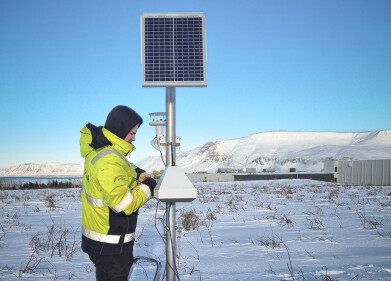Air Quality Monitoring
Transforming Industry: The Revolution of Sensor-based Air Quality Systems
May 07 2024
A growing concern about the environmental impact of industries has driven the search for innovative solutions that not only reduce pollution, but also improve economic efficiency. In this context, sensor-based air quality systems have become essential tools to address these challenges in an effective and sustainable way.
Industrial pollution is a global problem that affects both human health and the environment. According to the European Environment Agency (EEA), the costs associated with industrial pollution in 2024 reached between €268-428 billion, underlining the urgency of finding effective solutions to mitigate this impact. Fortunately, there have been significant advances in industrial emissions control in recent decades, driven by the adoption of innovative technologies and more efficient production processes.
One of the first steps in addressing industrial pollution is to understand and control emissions. In this regard, sensor-based air quality systems offer a promising solution by enabling real-time monitoring of a wide range of pollutants. These systems use cost-effective and robust methodologies to identify fugitive emissions and industrial pollutants, facilitating the implementation of effective control policies. By providing real-time information on pollution levels at the industrial perimeter, these systems improve public health protection and worker safety while identifying inefficiencies in production processes.
Sensor-based stations are being applied in a variety of industries, including wastewater treatment plants, heavy industry, oil and gas, mining and construction. For example, at the Cemex cement plant in Monterrey, Mexico, a monitoring network was deployed to record key pollutants and alert on possible exceedances of established levels. Similarly, in the petrochemical industry, Kunak AIR devices are being used to identify emissions and protect the health of workers and the environment.
Despite their benefits, sensor-based air quality systems are not yet regulated. However, there have been international efforts to evaluate their performance and data quality. Agencies such as the US Environmental Protection Agency (USEPA) have developed evaluation protocols, although an accepted international standard to compare the performance of different systems is still lacking.
Leading companies in the field of sensor technology, such as Kunak, have developed compact and cost-effective solutions that have proven to be highly accurate through various evaluations and certifications (e.g. MCERTS).
In summary, sensor-based air quality systems offer an effective and sustainable solution to address industrial pollution. Their capability to provide real-time data on pollution levels and identify inefficiencies in production processes makes them a valuable tool for industries looking to improve their environmental impact and economic efficiency. Kunak is a leading company in applying new technology to improve these solutions to help industries move towards greater sustainability and competitiveness in the global marketplace.
Digital Edition
IET 34.2 March 2024
April 2024
Gas Detection - Biogas batch fermentation system for laboratory use with automatic gas analysis in real time Water/Wastewater - Upcycling sensors for sustainable nature management - Prist...
View all digital editions
Events
May 20 2024 Columbus, OH, USA
May 21 2024 Lagos, Nigeria
May 23 2024 Beijing, China
May 23 2024 Beijing, China
May 29 2024 Beijing, China




















